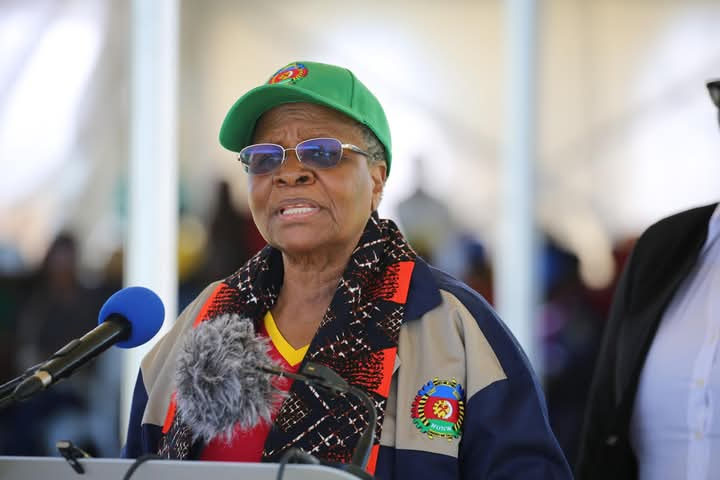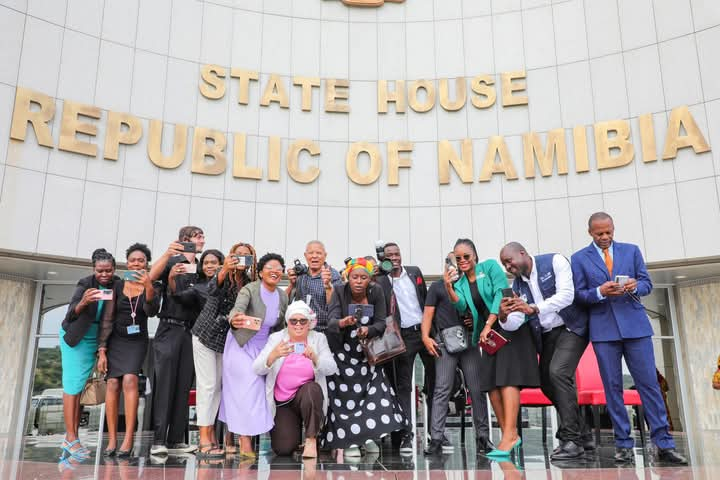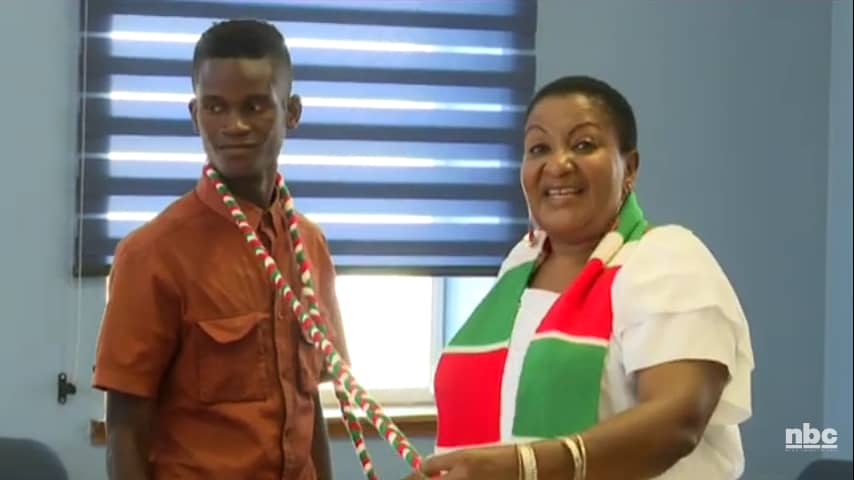THE Jewellers Association of Namibia (Jossana) says it is concerned about new claims on the illegal trade in ivory objects – known as omakipa – in Namibia.
“Jossana is of the opinion that everything must be done to curb the possible import of illegal ivory into Namibia,” the association’s Chairman, Andreas Herrle, said in a statement yesterday. Herrle said the Ministry of Environment and Tourism (MET) had established a committee, including him as chairman of Jossana, to work on a system to control the manufacture and sale of new omakipa from ivory gathered from elephants that had died of natural causes in areas under the jurisdiction of the Ministry.He said a forgery-proof certificate had also been designed and omakipa from controlled sources would be fitted with a microchip, which could be read with scanners available all over the world.Furthermore, said Herrle, a farm has been identified with an existing jewellery workshop, where ivory carvers would be trained and supervised under very controlled conditions.”On the farm, the microchips would already be inserted in the omakipa, programmed with an identification number and issued with a certificate delivered to registered jewellers, who would set it into jewellery and sell it to a prospective customer with the corresponding certificate,” said Herrle.He said with this system in place, the ekipa trade in Namibia would be properly controlled.New claims of illegal trade in omakipa are detailed in a just-released report by the David Shepherd Wildlife Foundation (DSWF) Herrle said the association was surprised that the DSWF did not raise its objections in August when it visited Namibia, but instead waited to release the report just as the CITES conference was about to start – “when they could be assured of heightened media attention”.On Tuesday, the Permanent Secretary in the Ministry of Environment Dr Malan Lindeque, declined to comment on the report, saying he had not yet seen it.Lindeque is in The Netherlands for the conference of the UN Convention on International Trade in Endangered Species (CITES), which starts on Saturday.The DSWF report charged that illegal trade in ivory in Namibia was fuelled by a 2004 CITES decision to allow Namibia to sell omakipa under strict conditions.In August 2006 and April 2007, DSWF visited Namibia and found that the promised control scheme had not been implemented.In the absence of any controls, trade in omakipa from unknown and probably illegal sources has boomed, the organisation says.Herrle said the Ministry of Environment and Tourism (MET) had established a committee, including him as chairman of Jossana, to work on a system to control the manufacture and sale of new omakipa from ivory gathered from elephants that had died of natural causes in areas under the jurisdiction of the Ministry.He said a forgery-proof certificate had also been designed and omakipa from controlled sources would be fitted with a microchip, which could be read with scanners available all over the world.Furthermore, said Herrle, a farm has been identified with an existing jewellery workshop, where ivory carvers would be trained and supervised under very controlled conditions.”On the farm, the microchips would already be inserted in the omakipa, programmed with an identification number and issued with a certificate delivered to registered jewellers, who would set it into jewellery and sell it to a prospective customer with the corresponding certificate,” said Herrle.He said with this system in place, the ekipa trade in Namibia would be properly controlled.New claims of illegal trade in omakipa are detailed in a just-released report by the David Shepherd Wildlife Foundation (DSWF) Herrle said the association was surprised that the DSWF did not raise its objections in August when it visited Namibia, but instead waited to release the report just as the CITES conference was about to start – “when they could be assured of heightened media attention”.On Tuesday, the Permanent Secretary in the Ministry of Environment Dr Malan Lindeque, declined to comment on the report, saying he had not yet seen it.Lindeque is in The Netherlands for the conference of the UN Convention on International Trade in Endangered Species (CITES), which starts on Saturday.The DSWF report charged that illegal trade in ivory in Namibia was fuelled by a 2004 CITES decision to allow Namibia to sell omakipa under strict conditions.In August 2006 and April 2007, DSWF visited Namibia and found that the promised control scheme had not been implemented.In the absence of any controls, trade in omakipa from unknown and probably illegal sources has boomed, the organisation says.
Stay informed with The Namibian – your source for credible journalism. Get in-depth reporting and opinions for
only N$85 a month. Invest in journalism, invest in democracy –
Subscribe Now!










